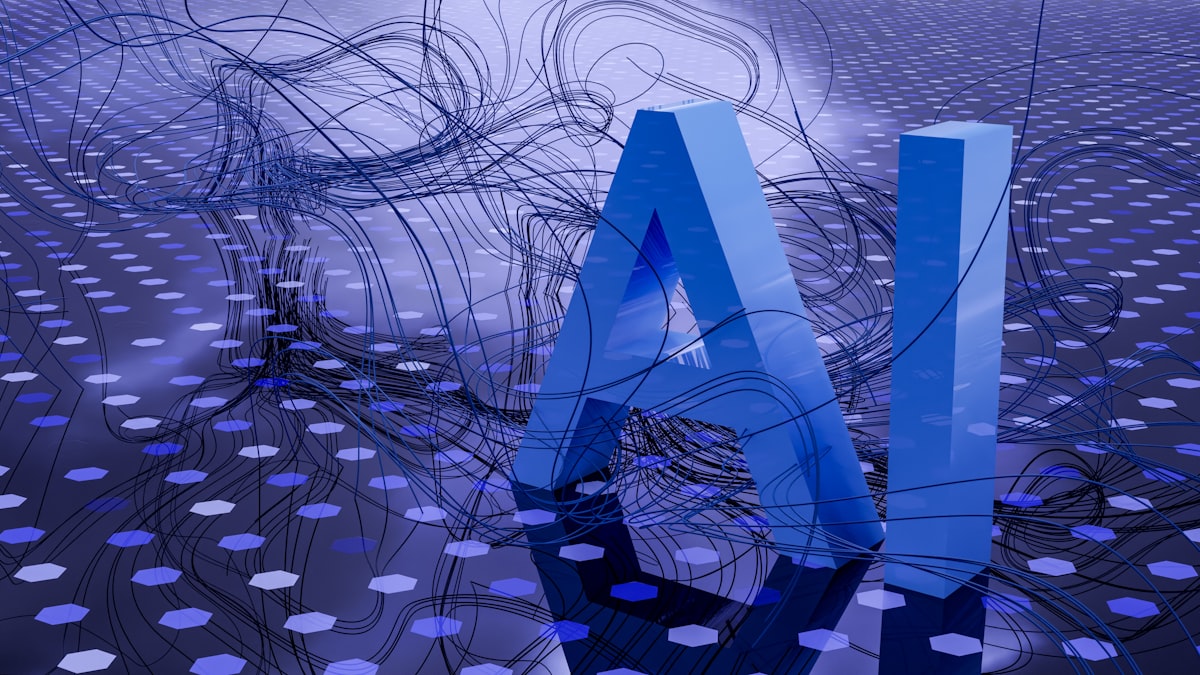AI Design Transformation: How Automation is Reshaping Creative Workflows
Priyank Deep Singh

AI's Impact on Design
Transformation, Challenges, and Opportunities
Artificial Intelligence is fundamentally reshaping the design landscape. From automated asset generation to intelligent color selection, AI is changing how we create, iterate, and think about design.
Table of Contents
The AI Revolution in Creative Industries
We're witnessing the most significant shift in creative work since the digital revolution of the 1990s.
The creative industry has always been defined by human imagination, intuition, and artistic vision. For decades, designers relied on their ability to conceptualize, sketch, and manually craft every element of their work. Today, artificial intelligence is introducing capabilities that seemed impossible just years ago.
AI can now generate photorealistic images from text descriptions, create entire brand identities in minutes, and suggest design improvements based on user behavior data. This isn't just automation—it's augmentation of human creativity at an unprecedented scale.
"AI is not replacing creativity—it's democratizing it and amplifying human potential."
Global Accessibility
AI tools make professional design accessible worldwide
Speed Revolution
Tasks that took hours now complete in minutes
Intelligence Augmentation
AI enhances human decision-making with data insights
How AI is Transforming Design Workflows
The traditional design process is evolving into something more dynamic, collaborative, and efficient.
Automated Asset Generation
AI can now generate logos, icons, illustrations, and even complete design systems in minutes rather than hours or days.
Intelligent Layout Suggestions
Machine learning algorithms analyze successful designs to suggest optimal layouts, spacing, and component arrangements.
Color Palette Intelligence
AI understands color theory, psychology, and accessibility to generate harmonious palettes that work across all contexts.
Content-Aware Design
AI can analyze content and automatically adjust typography, spacing, and visual hierarchy for optimal readability and engagement.
The New Designer: Human + AI Collaboration
Traditional Designer
AI-Enhanced Designer
The most successful designers of tomorrow won't be those who resist AI, but those who learn to dance with it. They'll use AI to handle routine tasks while focusing their human creativity on strategy, storytelling, and emotional connection.
This collaboration model allows designers to explore more ideas, test more variations, and ultimately create better solutions for users. The key is understanding where AI excels and where human insight remains irreplaceable.
Real-World Impact: Case Studies & Examples
Startup Branding
A tech startup used AI to generate 50 logo variations in one hour, then refined the best options with human creativity.
E-commerce Design
An online retailer uses AI to automatically generate product page layouts optimized for conversion rates.
App Interface
A mobile app team leverages AI for color palette generation, ensuring accessibility across all user interfaces.
Challenges and Ethical Considerations
Creative Homogenization
As more designers use similar AI tools, there's a risk of designs becoming increasingly similar, reducing creative diversity.
Skill Dependency
Over-reliance on AI tools may lead to atrophy of fundamental design skills and creative problem-solving abilities.
Ethical Concerns
Questions around AI training data, copyright, and the authenticity of AI-generated creative work remain unresolved.
Quality Control
AI-generated designs may lack the nuanced understanding of brand context and user needs that human designers provide.
Preparing for the AI-Driven Design Future
Master AI Tools
Become proficient with AI design tools like Figma AI, Midjourney, and ColorBrew.art. Understanding their capabilities and limitations is crucial.
Strengthen Human Skills
Focus on uniquely human abilities: empathy, strategic thinking, client communication, and creative problem-solving.
Develop AI Literacy
Learn how AI works, its biases, and how to prompt effectively. This knowledge will make you a better AI collaborator.
Build Hybrid Workflows
Create processes that seamlessly blend AI efficiency with human creativity and oversight.
ColorBrew.art: AI-Powered Color Innovation
Experience AI-Enhanced Color Design
ColorBrew.art demonstrates how AI can enhance the creative process without replacing human intuition. Our AI-powered palette generator combines color theory, psychology, and accessibility to create harmonious color schemes that work.
AI-Generated Palettes
Smart color combinations based on mood and context
Accessibility Checking
Automatic contrast validation for inclusive design
Developer-Ready Export
CSS, Tailwind, and design token formats
"AI doesn't replace creativity—it amplifies it."
The future of design lies not in choosing between human creativity and artificial intelligence, but in finding the perfect harmony between both. As we move forward, the most successful designers will be those who embrace AI as a powerful creative partner.
Ready to explore AI-enhanced design?
Start with ColorBrew.art
Written by Priyank Deep Singh
Creator of Colorbrew.art
